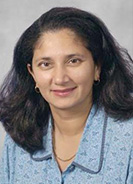Today is World NF Awareness Day. NF is short for neurofibromatosis, a hereditary condition that causes tumors to grow in the nervous tissue of the body. The tumors are generally benign (noncancerous), but they can still cause neurological problems with hearing, balance, pain, or weakness, depending on where they grow.
Causes of NF
About half of all people with NF inherited it from a parent. The other half developed it as a result of a spontaneous gene mutation, which is entirely by chance and can’t be controlled.
People with NF have a 50% chance of passing it on to their children, according to St. Jude Children’s Research Hospital.
Signs and Symptoms of NF
There are two types of NF: type 1 and type 2. They develop at different ages and can cause different types of growths and complications.
NF1 Is the Most Common Type
NF1 presents at birth or in early childhood. It is the most common type of NF, occurring in one out of every 3,500 births, and is characterized by:
- Small, light brown spots in the groin and underarms (café au lait spot)
- Benign tumors under the skin
- Scoliosis
- Bone deformities, such as bowing of the legs
Young children can develop eye tumors and may lose vision. It is important to diagnose NF1 at a young age so appropriate eye screening can be performed.
About 10% of people with NF1 develop a cancerous tumor at some point in their lifetime.
Gliomas are the most common type of brain tumor seen in patients with NF1 and can be treated by a neurosurgeon and an oncologist.
NF2 Is a Less Common form of NF
NF2 presents around childhood, adolescence or early adulthood and is much rarer than NF1.
People with NF2 often have benign tumors on the nerves in the inner ear. These tumors can interfere with signals sent from the ears to the brain, which can affect hearing and balance. They also can develop tumors along their nerves and spinal cord, such as schwannomas or ependymomas. Pain and weakness may be seen in these cases.
How NF Is Diagnosed
Generally, a physician can diagnose NF from clinical observations. A set of standardized criteria are used to evaluate patients. A genetic counsellor can discuss the option of testing to add to the certainty of a diagnosis. Typically, a blood or saliva test is ordered to confirm changes in the gene responsible for NF1 or NF2.
Pediatricians, neurologists, ophthalmologists and dermatologists are the providers that most commonly refer patients to NF clinics.
Treatments for NF
Currently, there is no cure for NF. Your provider may prescribe medication to manage pain or recommend surgery or radiation therapy to remove or reduce tumors.
Recently, the U.S. Food and Drug Administration approved an oral medication called koselugo for neurofibromas for people with NF1.
Dr. Shafqat Shah, a pediatric neuro-oncologist at University Health, said koselugo has helped some patients with pain management and has reduced the size of their tumors.
While there aren’t currently any approved treatments for NF2, researchers are working on finding treatments, thanks to families advocating for more funding and clinical trial research.
NF Care at University Health
University Health has the only comprehensive NF program in San Antonio staffed by a multidisciplinary team. Our providers include specialists in oncology, radiology, cancer genetics, ophthalmology, neurosurgery and orthopedics. We also have dedicated staff such as genetic counselor, social worker and psychology to support you and your family.
Our NF providers see patients from childhood through age 25 and can refer you to care at Mays Cancer Center if needed.
Patients may be referred to the Cancer Predisposition Clinic at University Hospital for evaluation.
For more information or to refer a patient, please call our clinic at 210-743-2300.





